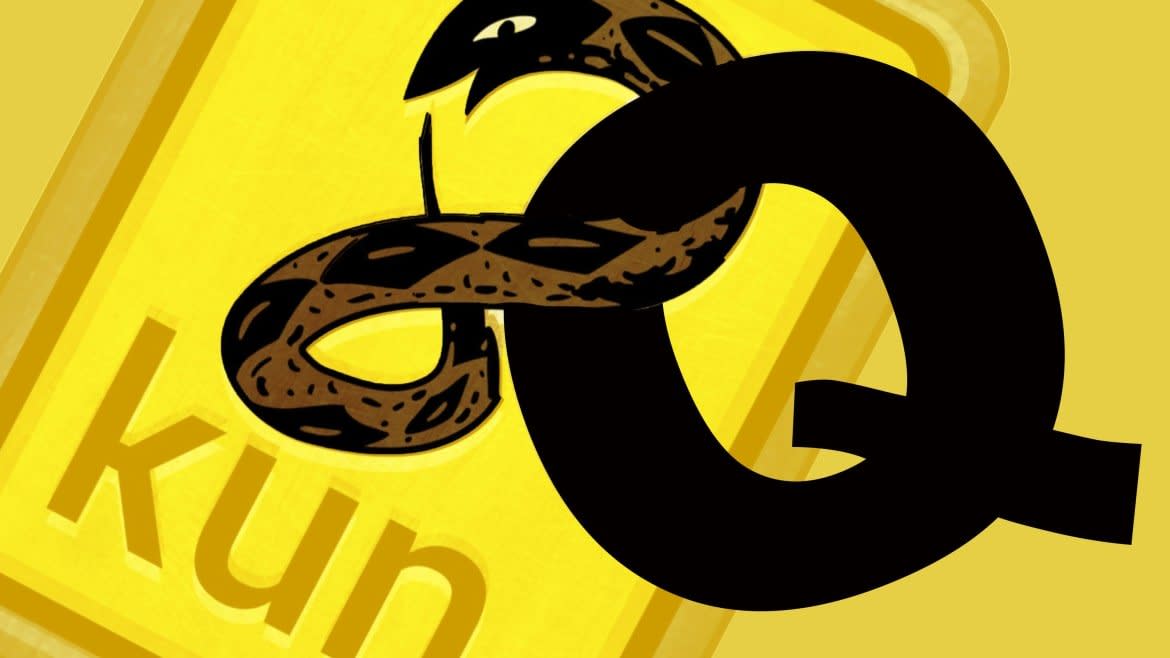QAnon’s Fave Website Lost Its Host—but Found a New Russian One

QAnon—an unhinged conspiracy theory falsely accusing President Donald Trump’s foes of Satanic pedophilia and cannibalism—has become so enmeshed in the GOP that at least one Q-loving Republican is expected to win a congressional seat this year.
But in more level-headed industries, the theory is so toxic that few U.S. companies want anything to do with it. That includes an Oregon-based web services company that severed ties with the main QAnon-associated website on Sunday night, temporarily taking the site offline.
8kun, a seedy forum previously known as 8chan, is the current ground zero for QAnon. The site is home to Q, a person or group of people who claim to be a high-level government insider dropping hints about an impending pro-Trump revolution. (The site is also home to white supremacists, including some who have used it to publicize mass-shootings.) The site’s reputation made it anathema to web services companies, with internet activists campaigning to keep 8kun offline.
8kun’s Sunday night outage was a win for those anti-Q forces—until the site took up business with a Russian company that brought it back online.
Fighting 8kun is a game of whack-a-mole for its opponents. Some, like 8chan’s founder-turned-critic Fredrick Brennan, have dutifully tweeted about the site’s moves for years, tracking it as it bounces from web host to web host. (Brennan founded 8chan, the forum’s original incarnation, in 2016, but has since come into bitter conflict with the site’s new owner, Jim Watkins.)
Trump Refuses to Denounce QAnon at NBC Town Hall
Last week, Brennan revealed on Twitter that 8kun had struck up business with CNServers, an Oregon-based company that helps sites fight off attacks. On Sunday night, a cybersecurity researcher got in touch with the company, which claimed it had no idea it was providing services to 8kun, according to security researcher Brian Krebs.
CNServers immediately severed ties with 8kun, forcing the forum to take its business to a company in St. Petersburg, Russia. The scramble took 8kun offline for several hours—not a good look for a forum that is supposedly the mouthpiece of a high-level military intelligence official.
The outage came the same weekend as 8kun’s owner Jim Watkins attended a QAnon conference in Arizona. Watkins, who was a featured speaker at the event, has become a prominent figure in the Q world, with Brennan and other observers speculating that Watkins might be involved in the posts. (Watkins has never commented on the allegations.)
8Chan Stages a Comeback Under a New Name
8kun has gone offline before—not for its connections to QAnon, but for its connections to mass shootings by white supremacists. In August 2018, following three mass-shootings by white supremacists who posted manifestos on the site (then called 8chan), multiple web services companies dropped the forum as a client. Among those companies was Cloudflare, a security company notoriously reluctant to drop even its most controversial clients. In 8chan’s case, Cloudflare made an exception.
“At some level firing 8chan as a customer is easy,” Cloudflare’s CEO wrote in a blog post. “They are uniquely lawless and that lawlessness has contributed to multiple horrific tragedies. Enough is enough.”
The site later rebranded as 8kun and went back online, largely with support from foreign web hosts and a Vancouver, Washington-based company that still supports the forum.
While 8chan was dark in 2018, QAnon fans tried multiple methods to get it back online, including a bootleg version that some Q fans dropped when they realized it might have been uploading child exploitation images to their computers.
Get our top stories in your inbox every day. Sign up now!
Daily Beast Membership: Beast Inside goes deeper on the stories that matter to you. Learn more.

 Yahoo News
Yahoo News 
